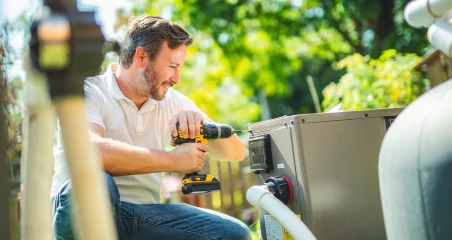


You don’t think about a pool heater until it stops working. One day, your pool is a perfect temperature; the next, it feels like an ice bath
You don’t think about a pool heater until it stops working. One day, your pool is a perfect temperature; the next, it feels like an ice bath. Before you panic and start looking for a new heater, take a step back. Not every malfunction means it’s time for a replacement. Many common issues have simple fixes that can save you time and money. Let’s go through what might be wrong and how you can get your pool heater back up and running without breaking the bank.
Sometimes, the problem is as simple as a power issue. If your heater isn’t turning on at all, start here:
A power issue is one of the simplest things to fix, but it’s often overlooked.
Pool heaters need a steady flow of water to work properly. If there’s a blockage or reduced flow, the heater may not function. Here’s what to check:
Fixing water flow problems can restore heat without any major pool heater repair.
Over time, dirt, debris, and even small animals can enter your pool heater. A little cleaning can go a long way in restoring performance.
Routine maintenance can prevent these issues from happening in the first place, so make cleaning a habit.
If you’ve gone through all these steps and your heater still won’t work, it may be time to call in an expert. Some problems require specialized tools or knowledge, especially when dealing with gas lines or electrical components.
A malfunctioning pool heater doesn’t always mean it’s time for a replacement. Many common issues can be fixed with simple troubleshooting or pool heater repair. Checking power, water flow, sensors, and internal components can save you a costly new heater purchase. Regular maintenance and quick attention to small problems can keep your heater running smoothly for years. If this guide helped, share it with someone else who might be struggling with a cold pool!
